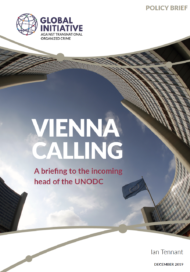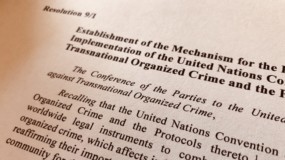Posted on 11 Dec 2019
This briefing examines the transnational organized crime (TOC) challenges facing the UN Office on Drugs and Crime (UNODC) as its new executive director – Egypt’s Minister of Social Solidarity Ghada Fathi Waly – prepares to take office. The TOC challenges that the UNODC is mandated to address are varied, increasingly globalized and interconnected, and will need to be tackled in the midst of an apparent decline in multilateralism worldwide. The new executive director will have to gain attention and influence in increasingly crowded UN circles, while being based at the UN in Vienna, far from the centre of power in New York and in the shadow of the bigger siblings of the UN family in Geneva.
The UNODC has a compelling and important set of mandates, accumulated experience and knowledge on its issues, and a growing funding base. The new executive director has an extraordinary opportunity to capitalize on this scenario. However, something is holding the organization back. She will need to lead the UNODC towards a more open and engaging future, by adapting both its operations and communications to these complex challenges and political contexts, by prioritizing interagency cooperation in the field and at HQ levels, and by reversing its perception as a competitive and defensive member of the UN family. In order to contribute to the next phase in the journey of the UNODC, this briefing sets out some of the key challenges and suggests ways to respond to them.




